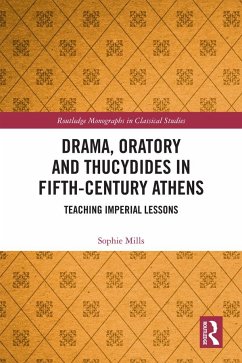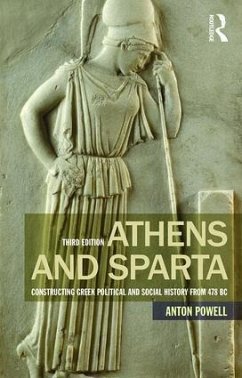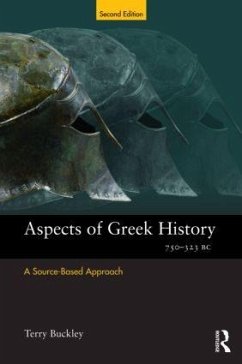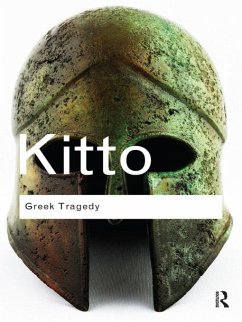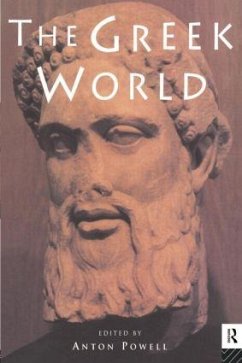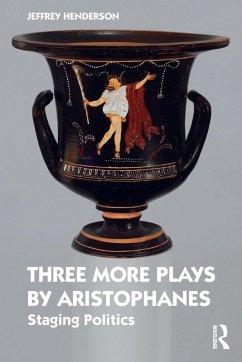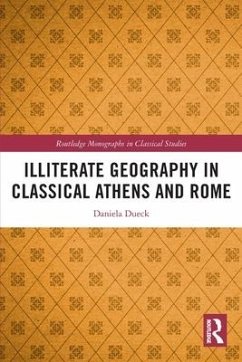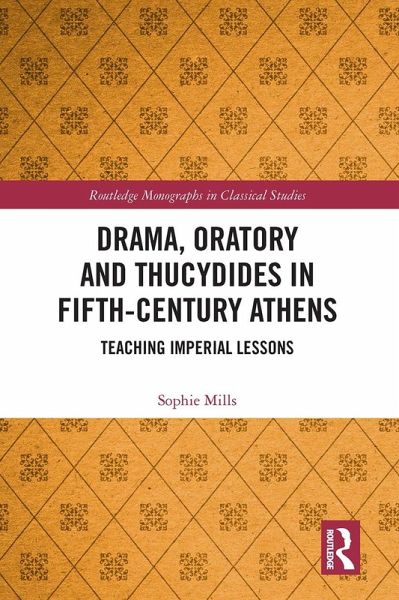
Drama, Oratory and Thucydides in Fifth-Century Athens
Teaching Imperial Lessons
Versandkostenfrei!
Versandfertig in 6-10 Tagen
43,99 €
inkl. MwSt.
Weitere Ausgaben:

PAYBACK Punkte
22 °P sammeln!
This study centres on the rhetoric of the Athenian empire, Thucydides' account of the Peloponnesian War and the notable discrepancies between his assessment of Athens and that found in tragedy, funeral orations and public art.Mills explores the contradiction between Athenian actions and their self-representation, arguing that Thucydides' highly critical, cynical approach to the Athenian empire does not reflect how the average Athenian saw his city's power. The popular education of the Athenians, as presented to them in funeral speeches, drama and public art told a very different story from tha...
This study centres on the rhetoric of the Athenian empire, Thucydides' account of the Peloponnesian War and the notable discrepancies between his assessment of Athens and that found in tragedy, funeral orations and public art.
Mills explores the contradiction between Athenian actions and their self-representation, arguing that Thucydides' highly critical, cynical approach to the Athenian empire does not reflect how the average Athenian saw his city's power. The popular education of the Athenians, as presented to them in funeral speeches, drama and public art told a very different story from that presented by Thucydides' history, and it was far more palatable to ordinary Athenians since it offered them a highly flattering portrayal of their city and, by extension, each individual who made up that city.
Drama, Oratory and Thucydides in Fifth-Century Athens: Teaching Imperial Lessons offers a fascinating insight into Athenian self-representation and will be of interest to anyone working on classical Athens, the Greek polis and classical historiography.
Mills explores the contradiction between Athenian actions and their self-representation, arguing that Thucydides' highly critical, cynical approach to the Athenian empire does not reflect how the average Athenian saw his city's power. The popular education of the Athenians, as presented to them in funeral speeches, drama and public art told a very different story from that presented by Thucydides' history, and it was far more palatable to ordinary Athenians since it offered them a highly flattering portrayal of their city and, by extension, each individual who made up that city.
Drama, Oratory and Thucydides in Fifth-Century Athens: Teaching Imperial Lessons offers a fascinating insight into Athenian self-representation and will be of interest to anyone working on classical Athens, the Greek polis and classical historiography.




